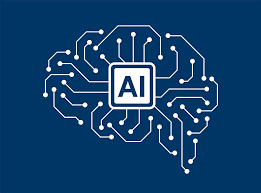Artificial Intelligence (AI) is changing the world of many industries, and energy management isn’t an one of them. As the world faces growing energy demand as well as environmental issues, artificial intelligenceis becoming a game changer in optimizing resource use and enhancing energy efficiency.
What is AI in Energy Management?
artificial intelligence (umela inteligence) refers to the imitation of human intelligence in machines that are designed to learn and think. In the field of energy management AI involves the use of algorithmic models and machines learning to analyse vast amounts of data, make predictions and automate decision-making. These tools aid in optimizing energy production, distribution and consumption, making the systems more efficient and responsive.
Key Applications of AI in Energy Management
Predictive Analytics AI systems analyze historical data as well as inputs from real-time to predict energy demand and supply. This helps in predicting peak times for usage and adjusts production of energy accordingly, thus decreasing waste and increasing reliability. In particular, AI can anticipate high demand for energy periods and make sure that the grids are set to handle the load.
Smart Grids: AI enhances the functionality of smart grids by enhancing the distribution of electricity. By monitoring and analysis in real-time, AI can detect faults as well as balance loads and regulate energy flows more effectively. This leads to improved grid stability and reduced energy losses.
Energy Efficiency: AI algorithmic algorithms optimise energy consumption in buildings and industrial processes. By analyzing usage patterns and environmental conditions, AI systems can modify the temperature, cooling, and lighting systems to reduce energy consumption, without compromising the comfort or efficiency. For example, smart thermostats use AI to understand preferences of the user and adjust temperature to help save energy.
Renewable Energy Integration: AI assists in the integration of renewable energy sources such as wind and solar to the electricity grid. It can predict the weather conditions that will optimize energy production from these sources and also manages their fluctuations. AI also aids with the effective storage of and distribution for renewable power, ensuring the availability of energy.
Demand Response AI assists demand-response programs in predicting and managing shifts in energy usage. It helps in incentivizing users to decrease or shift their energy consumption in peak times, thereby stabilizing the grid while reducing the requirement for power generation.
Challenges and Future Prospects
However, despite its advantages however, the use in the use of AI in energy management faces challenges such as data privacy concerns, high implementation costs and the need for qualified personnel. Furthermore the integration of AI with the existing infrastructure demands careful planning and adjusting.
Looking ahead, advancements in AI technology will bring even more improvement on energy efficiency. Enhanced algorithms, increased access to data, as well as more sophisticated sensors will result in more efficiency and innovation. AI’s role in creating sustainable energy solutions is predicted to grow becoming a vital part of the search for a more efficient and environmentally friendly energy landscape.
In short, AI is revolutionizing energy management through optimizing resource usage while also improving efficiency, as well as integrating renewable energy sources. As technology evolves, its impact on the energy sector is expected to be more profound and will lead to more efficient, greener energy solutions.


